Introduction
In the rapidly evolving landscape of healthcare, effective communication with patients is paramount. Email marketing has emerged as a powerful tool for healthcare organizations, providing a direct line to patients and prospects alike. This method not only facilitates the sharing of essential health information and appointment reminders but also fosters long-term relationships that enhance patient loyalty.
As clinics strive to stay connected in an increasingly digital world, understanding the nuances of email marketing becomes crucial for ensuring both compliance and engagement. This article delves into the significance of email marketing in healthcare, outlining key strategies for successful campaigns while emphasizing the importance of personalization and analytics in driving continuous improvement.
The Importance of Email Marketing in Healthcare
Healthcare email marketing serves as an essential resource for medical organizations, enabling them to connect efficiently with individuals and potential clients. It facilitates the dissemination of important health information, appointment reminders, and promotional offers. With a high return on investment (ROI), electronic communication enables clinics to sustain ongoing connections with individuals, ensuring they stay informed and involved with their healthcare providers.
Moreover, healthcare email marketing enables the ability to reach patients directly in their inboxes, enhancing the likelihood of patient retention and loyalty, making it an essential component of a comprehensive marketing strategy.
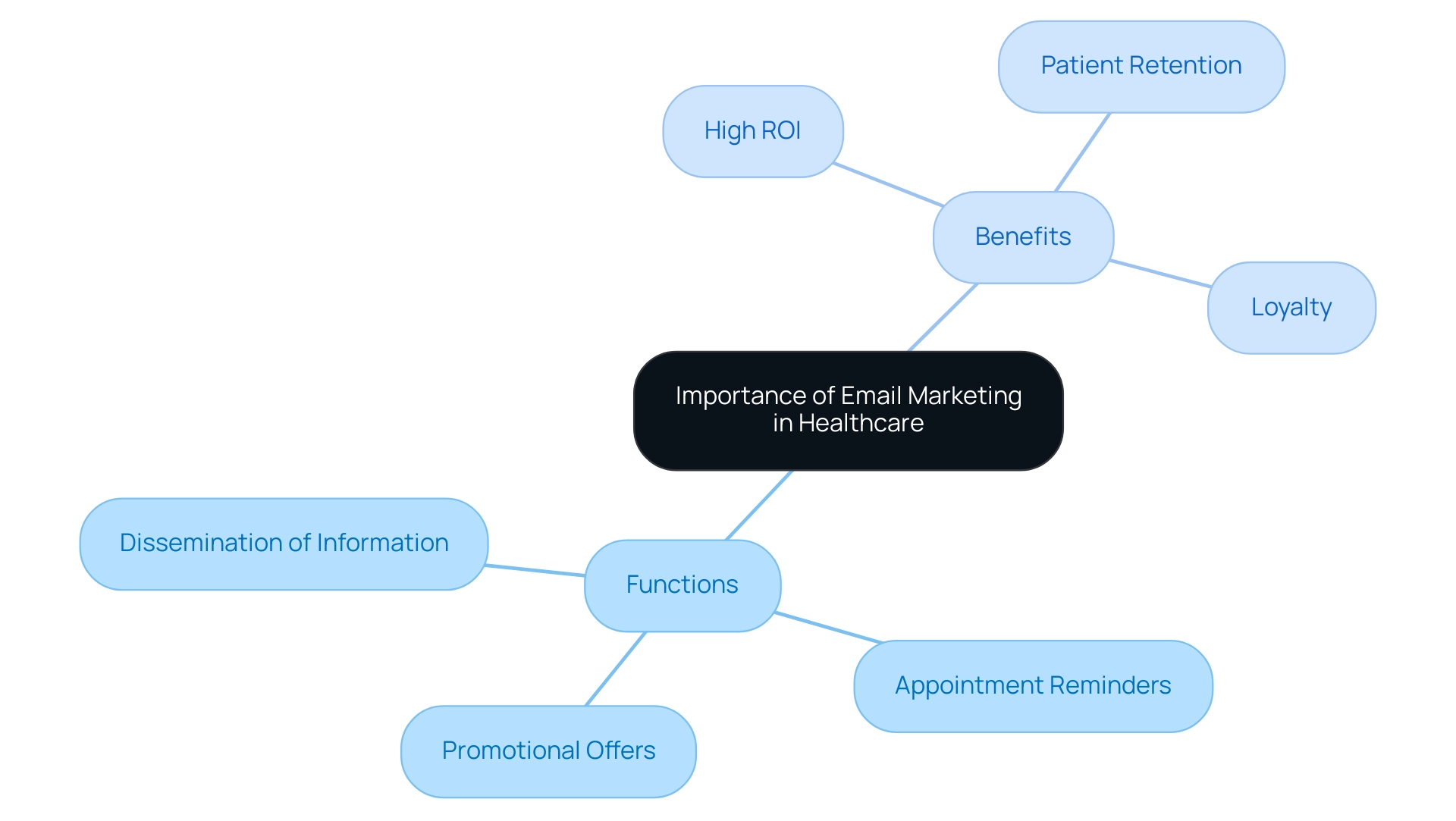
Key Strategies for Effective Healthcare Email Campaigns
-
Define Your Audience: Understanding your target audience is crucial for creating relevant content in healthcare email marketing. Segment your contact list based on demographics, interests, and behaviors to tailor your messages effectively.
-
Craft Compelling Subject Lines: The subject line is the first impression of your message. Make it concise, engaging, and informative to increase open rates.
-
In your healthcare email marketing, provide valuable content by ensuring your communications contain useful information, such as health tips, news about your practice, or updates on services. This builds trust and positions your organization as a reliable resource.
-
Include Clear Calls-to-Action (CTAs): Every message should have a clear CTA that guides recipients on what to do next, whether it’s scheduling an appointment or visiting your website for more information.
-
Optimize for Mobile: With many users accessing messages on mobile devices, ensure your communications are mobile-friendly to enhance user experience and engagement.
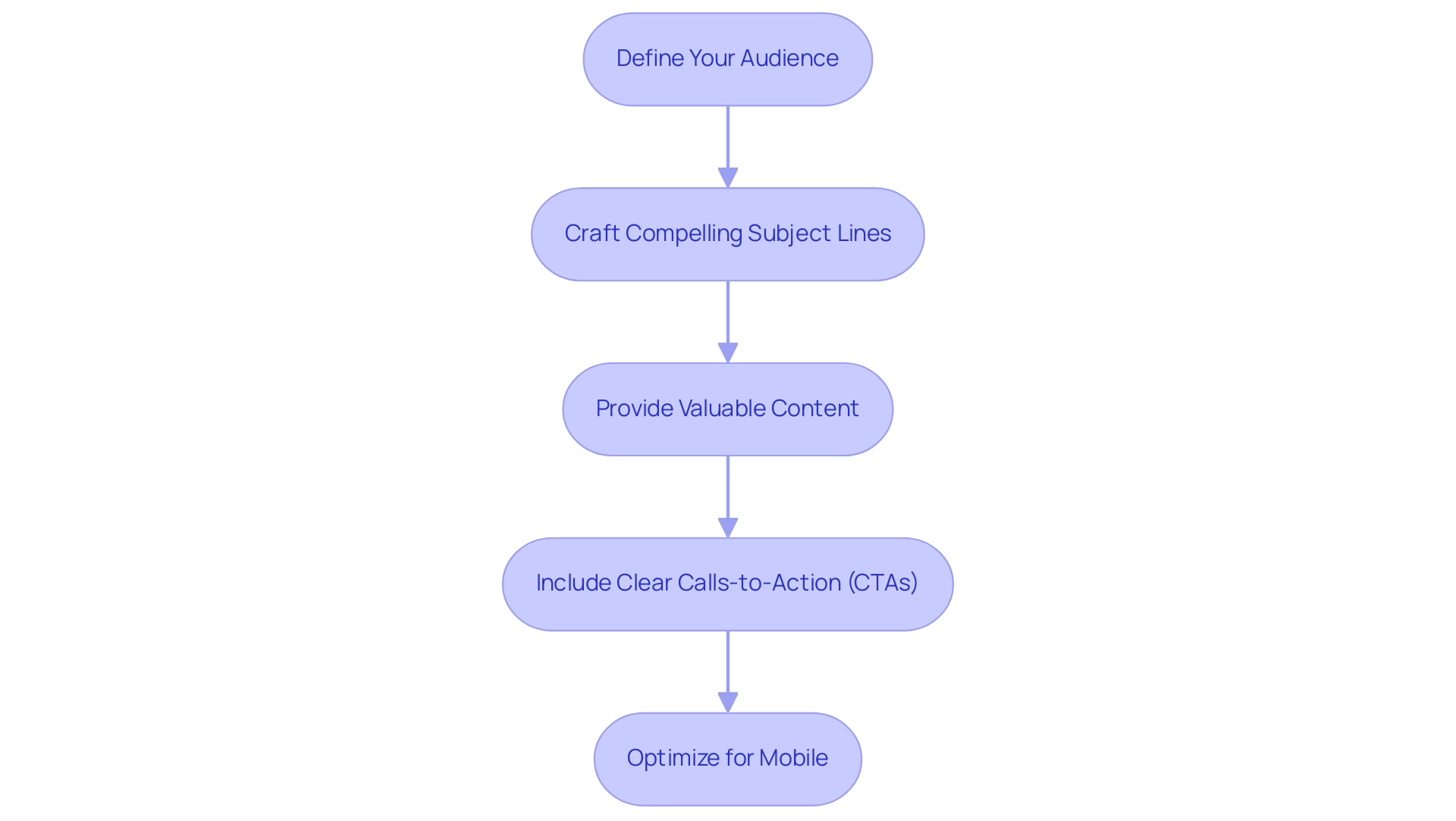
Ensuring Compliance: HIPAA and Email Marketing
Adhering to the Health Insurance Portability and Accountability Act (HIPAA) is essential in healthcare communication. Organizations must ensure that any individual information shared through healthcare email marketing is safeguarded and that consent is acquired prior to dispatching promotional communications. This includes:
- Utilizing secure messaging platforms that encrypt data
- Implementing policies that protect patient information
Failure to adhere to HIPAA can lead to serious penalties and harm to your organization’s reputation, making it crucial to prioritize compliance in all healthcare email marketing initiatives.
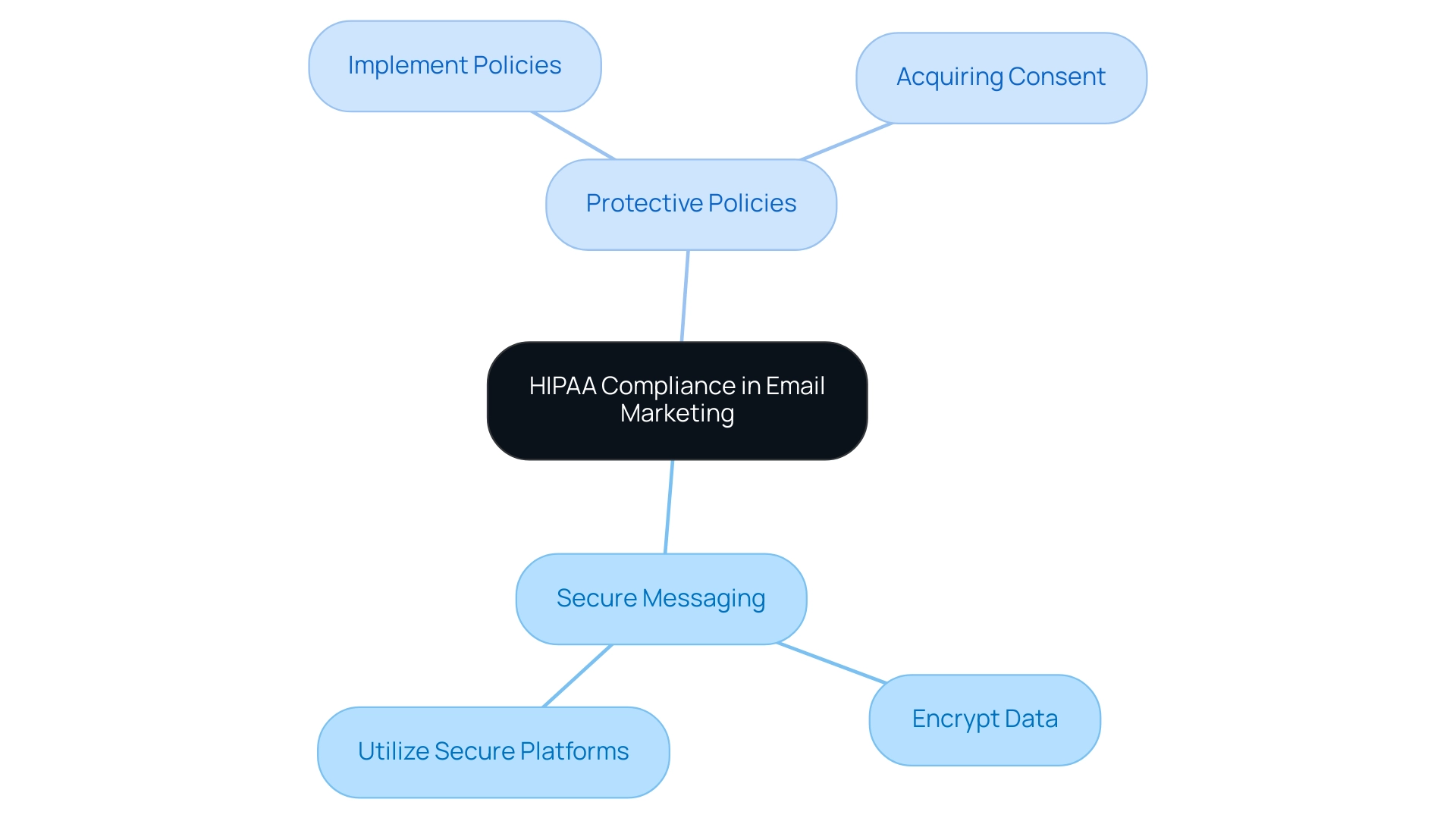
Personalization and Segmentation: Enhancing Engagement in Emails
Personalization and segmentation are critical for enhancing engagement in healthcare marketing communications. By categorizing your contact list according to factors like age, medical history, and preferences, you can customize your messages to address the specific needs of various groups. Customizing messages with the recipient’s name and pertinent content can significantly enhance open and click-through rates.
For instance, sending targeted health tips to patients with specific conditions can demonstrate your organization’s commitment to their well-being and encourage them to engage further with your services.
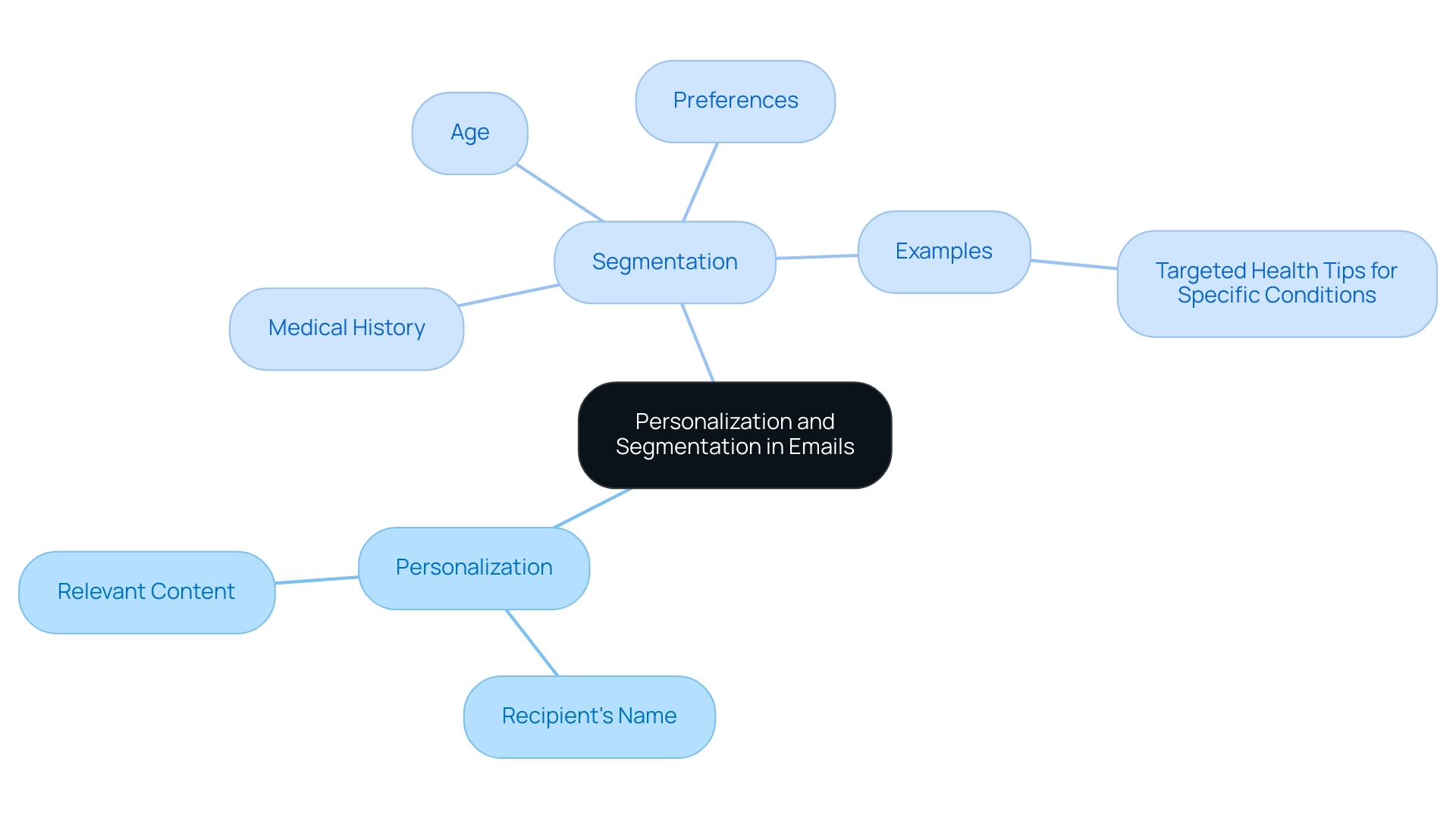
Leveraging Analytics for Continuous Improvement in Email Marketing
Analytics play a vital role in the success of medical communication campaigns. By monitoring key performance indicators (KPIs) such as:
- Open rates
- Click-through rates
- Conversion rates
healthcare organizations can gain insights into the effectiveness of their communication strategies. Tools like Google Analytics and healthcare email marketing platforms provide valuable data that can inform future campaigns.
Regularly reviewing these metrics allows organizations to identify what works and what doesn’t, enabling them to make data-driven adjustments that enhance overall performance and ROI.
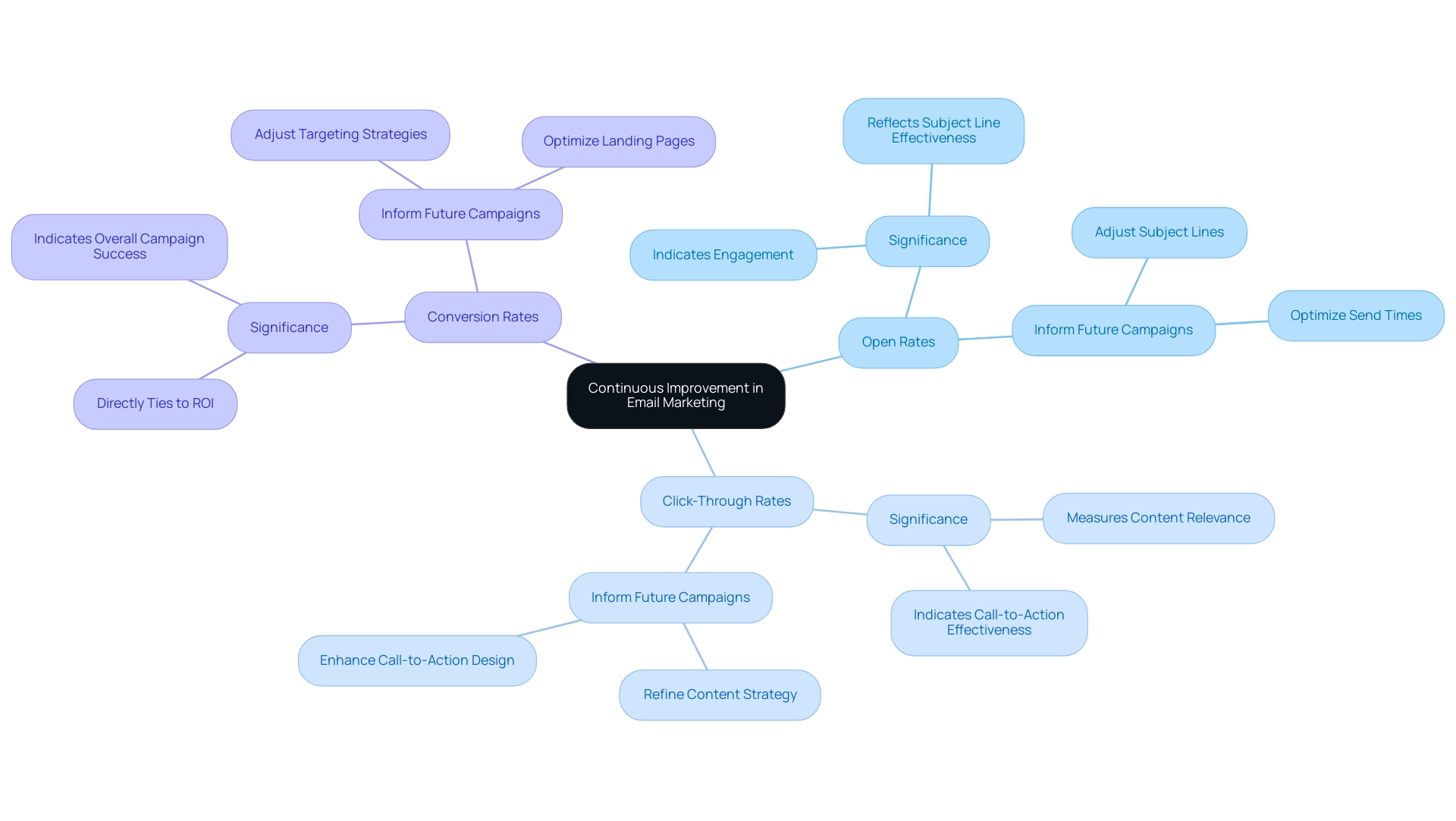
Conclusion
Email marketing has established itself as an indispensable tool for healthcare organizations, enhancing communication with patients while fostering loyalty and engagement. By effectively disseminating important health information, appointment reminders, and promotional offers, clinics can maintain a direct line to their patients, which is essential in today’s digital landscape.
Implementing key strategies such as:
- Audience segmentation
- Compelling subject lines
- Valuable content
helps ensure that email campaigns resonate with recipients. Additionally, compliance with regulations like HIPAA is critical for maintaining patient trust and safeguarding sensitive information. Personalization and segmentation not only enhance engagement but also demonstrate a commitment to patient well-being, fostering a deeper connection with healthcare providers.
Finally, leveraging analytics allows organizations to continuously refine their email marketing efforts. By monitoring performance metrics, healthcare providers can make informed decisions that optimize their strategies for better engagement and higher ROI. In conclusion, embracing email marketing with a focus on compliance, personalization, and data-driven improvement is essential for healthcare organizations aiming to thrive in an increasingly competitive environment.

